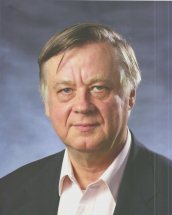Questioning Einstein: Is Relativity Necessary?
Date: 2010-09-25 Time: 07:00 - 09:00 US/Pacific (1 decade 4 years ago)
America/Los Angeles: 2010-09-25 07:00 (DST)
America/New York: 2010-09-25 10:00 (DST)
America/Sao Paulo: 2010-09-25 11:00
Europe/London: 2010-09-25 14:00
Asia/Colombo: 2010-09-25 19:30
Australia/Sydney: 2010-09-26 01:00 (DST)
Where: Online Video Conference
This video conference used DimDim, now a private company.
The meeting can be replayed by clicking this link:
watch the meeting recording
Description
I summarize my book, Questioning Einstein: Is Relativity Necessary? [Vales Lake Press, 2009], which in turn simplifies Petr Beckmann's Einstein Plus Two [Golem Press 1987]. It is written for those with little physics and uses no math. Beckmann's assumption was that the luminferous medium, which Michelson failed to detect in 1887, is the local gravitational field, which attenuates with distance from the gravitating body. Overwhelmingly, we are in the Earth's gravitational field, which accompanies the orbiting Earth but does not rotate with it. This accounts for the Michelson-Morley null result and predicts an east-west light speed difference and therefore a small fringe shift. An ?ether? denser near the sun predicts the bending of light rays by Fermat's Principle, and the gravitational red shift. Einstein's equation accounting for Mercury's orbit was published by Paul Gerber, 17 years before general relativity. Both the Sagnac experiment (1913) and Michelson-Gale (1924) showed a fringe shift, but were disqualified as tests of special relativity because they involved rotating (non-inertial) reference frames. GPS is said to validate special relativity because relativistic adjustments are entered into the orbiting clocks and would not synchronize without them. But the corrections do not refer clock motion to the observer, as relativity requires, but to the non-rotating Earth centered, inertial reference frame. This is a preferred reference frame ? not allowed by special relativity. The same criticism applies to the Hafele-Keating experiment (1972), in which atomic clocks were flown around the world and showed an east-west time difference. After 1916, Einstein restored a ?gravitational ether,? indistinguishable from Beckmann's ether, but played it down. The book concludes that general relativity gives the right results by a roundabout method. Special relativity has been falsified, unless rescued by the claim that all experiments on the surface of a rotating globe are non-inertial.



